December 3, 2007: David Weinberger, Everything is Miscellaneous
Full event coverage: Video, photos, press, interviews, essays
Weinberger Pt 1
Weinberger Pt 2
Weinberger Pt 3
The Flocking of Information: An Essay by David Weinberger
 As businesses go miscellaneous, information gets chopped into smaller and smaller pieces. But it also escapes its leash--adding to a pile that can be sorted and arranged by anyone with a Web browser and a Net connection. In fact, information exhibits bird-like "flocking behavior," joining with other information that adds value to it, creating swarms that help customers and, ultimately, the businesses from which the information initially escaped.
As businesses go miscellaneous, information gets chopped into smaller and smaller pieces. But it also escapes its leash--adding to a pile that can be sorted and arranged by anyone with a Web browser and a Net connection. In fact, information exhibits bird-like "flocking behavior," joining with other information that adds value to it, creating swarms that help customers and, ultimately, the businesses from which the information initially escaped. For example, Wize.com is a customer review site founded in 2005 by entrepreneur Doug Baker. The site provides reviews for everything from computers and MP3 players to coffee makers and baby strollers. But why do we need another place for reviews? If you’re using the Web to research what digital camera to buy for your father-in-law, you probably feel there are far too many sites out there already. By the time you have scrolled through one store’s customer reviews for each candidate camera and then cross-referenced the positive and the negative with the expert reviews at each of your bookmarked consumer magazines, you have to start the process again just to remember what people said. Wize in fact aims at exactly that problem. It pulls together reviews from many outside sources and aggregates them into three piles: user reviews, expert reviews (with links to the online publications), and the general "buzz." (For shoppers looking for a quick read on a product, Wize assigns an overall ranking.) When Wize reports that 97 percent of users love the Nikon D200 camera, it includes links to the online stores where the user reviews are posted, so customers are driven back to the businesses to spend their money.
Zillow.com does something similar for real estate. The people behind Expedia.com, Rich Barton and Lloyd Frink, were looking for a new business idea--and were in the market for new homes. After hunting for information, they found that most of it was locked into the multiple listings sites of the National Association of Realtors. Now Zillow takes those listings and mashes them up with additional information that can help a potential purchaser find exactly what she wants. The most dramatic mashup right now is the "heat map" that uses swaths of color to let you tell at a glance what are the most expensive and most affordable areas. At some point, though, Zillow or one of its emerging competitors will mash up listing information with school ratings, crime maps, and aircraft flight patterns.
Wize and Zillow make money by selling advertising, but their value is in the way their sites aggregate the miscellaneous--letting lots of independent sources flock together, all in one place.
We’re seeing the same trend in industry after industry, including music, travel, and the news media. Information gets released into the wild (sometimes against a company’s will), where it joins up with other information, and the act of aggregating adds value. Companies lose some control, but they gain market presence and smarter customers. The companies that are succeeding in the new digital skies are the ones that allow their customers to add their own information and the aggregators to mix it up, because whether or not information wants to be free, it sure wants to flock.
About the Author:
Weinberger is the co-author of The Cluetrain Manifesto, the bestseller that cut through the hype and told business what the Web was really about. His latest book, Small Pieces Loosely Joined, has been published to rave reviews hailing it as the first book to put the Internet in its deepest context. He's a frequent commentator on National Public Radio's All Things Considered. He's written for the "Fortune 500" of business and tech journals, including The New York Times, Harvard Business Review, The Miami Herald, The Boston Globe and Wired. Journalists from The New York Times, Newsweek, The Boston Globe, The Los Angeles Times, InformationWeek and many more turn to him for insight. He is a columnist for Darwin Magazine and Knowledge Management World, and writes an influential business technology newsletter and a daily "weblog." He was a philosophy professor for six years, a comedy writer for Woody Allen for seven years, a humor columnist for Oregon's major daily newspaper, a dot-com entrepreneur before most people knew what a home page was, and a strategic marketing consultant to household-name multinationals and the most innovative startups. He's got a Ph.D. in philosophy and has been appointed a Fellow at Harvard's prestigious Berkman Institute for Internet & Society.
He is also one of the most entertaining and acclaimed presenters around. Dr. David Weinberger turns this remarkable range of experience and knowledge to the most important question facing every business today: How is technology changing the way my employees, partners and customers are putting themselves together, and how is that changing the basics of my business? The answer will surprise you. Dr. Weinberger began his "career" in the late '70s teaching philosophy at New Jersey's Stockton State College for five years. During this time he maintained his steady freelance writing of humor, reviews and intellectual and academic articles, publishing in places as diverse as The New York Times, Harvard Business Review, Smithsonian, Alfred Hitchcock's Mystery Magazine and TV Guide.
 | 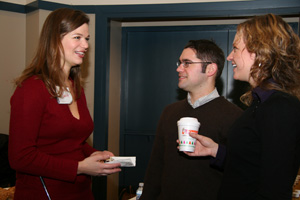 | 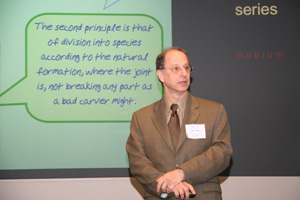 |
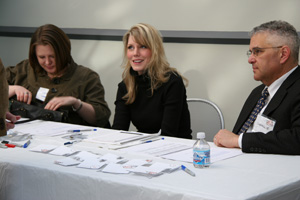 |  |  |
 |  |  |
 |  | 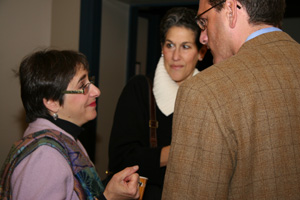 |
 |  |  |
 | 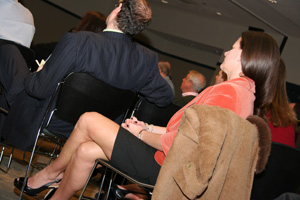 | 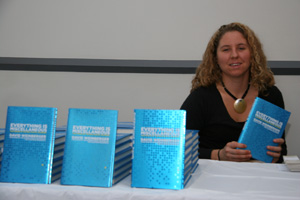 |






